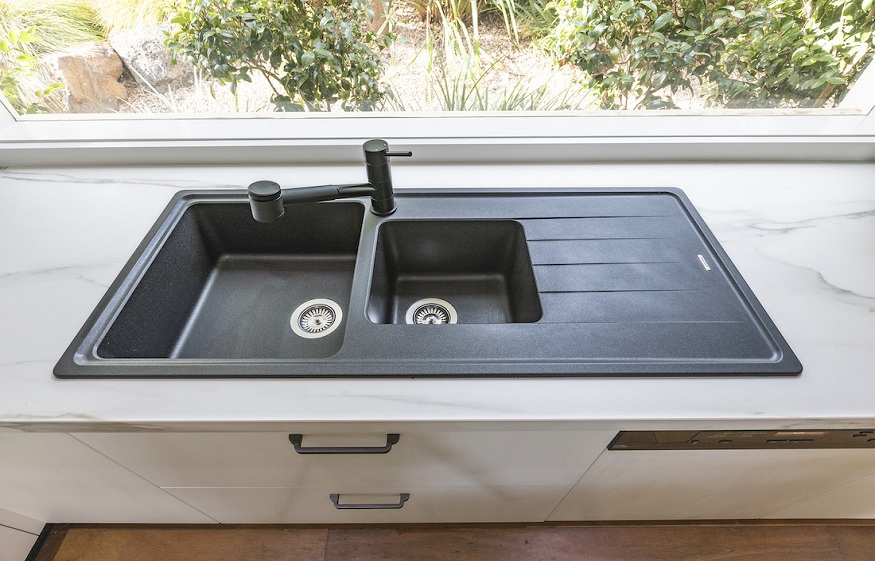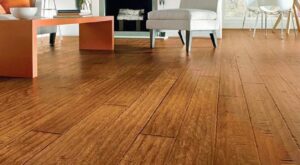Quartz sinks: valuable pros

An in-depth investigation of all issues with quartz kitchen sink, including their advantages over other types of sinks made of granite and blast furnace slag, how to keep them in good condition, and the question of whether or not their high price is justified.
Quartz and other materials known for their durability are widely used in the construction of modern kitchens and bathrooms. Quartz is a popular material for use in the construction of countertops, but it is also an excellent choice for sinks.
If you are considering using quartz for the sinks in your kitchen or bathroom, you should be aware of both the benefits and the drawbacks associated with this material.
Quartz is known for its strength and durability. It has the appearance of an exceptional stone due to its flawlessness, impermeability, and mineral composition, which gives it the illusion of being a stone. Quartz, on the other hand, is a material that can be shaped easily due to its composition, which makes it a superior choice when compared to other stone options for sink design.
Quartz is a very pliable material, yet despite this, it has a hard surface that increases the risk of breaking glass and ceramic.
Ground quartz is mixed with resin, which may be coloured to produce a variety of bespoke hues. A quartz sink’s primary components are acrylic resin and natural quartz, which together account for 80 percent of the sink’s total mass.
Sandstone and other types of quartz crystals are subjected to intense heat and pressure for an extended length of time in order to produce natural quartz crystals. The highly dense stone known as quartz is first crushed and then mixed with an acrylic resin in order to produce a surface that is both durable and inexpensive while maintaining the appearance of being natural.
Quartz is gaining popularity, particularly in use as a countertop material in kitchens. Granite, quartz, and a variety of other materials are often used for use as kitchen countertops. In addition, quartz is a fantastic choice for the construction of sinks. As is the case with any other drug, there are positive and negative aspects to this one as well. If you aren’t sure which material to use for the sinks in your kitchen or bathroom, the following advantages and disadvantages of quartz sinks should help you make your decision:
Quartz Sinks Pros
-
Extremely clean and sanitary –
Quartz does not let bacteria, mould, algae, or mildew grow on its surface because its surface is nonporous and does not allow for the growth of these organisms. Because of its hygienic qualities, quartz is an excellent choice for the construction of bathroom sinks.
In addition, they stop food particles from sticking to the surface, making them a perfect choice for kitchen sinks. Quartz sinks have a durable surface that is also quite smooth, which makes them very easy to clean.
-
Durable and long-lasting –
Due to the thick structure of quartz, it is an excellent material for use in domestic sinks since it is strong and resistant to breaking. Quartz can tolerate temperatures of up to 535 degrees Fahrenheit and is impervious to stains and scratches.
-
Noise-proofing –
In contrast to stainless steel sinks, which are prone to clangs and bangs when washing kitchen utensils and cookware, quartz sinks are intrinsically soundproofing and absorb noises extremely effectively. This is in contrast to the fact that stainless steel sinks are more durable.
-
Can be purchased in a wide variety of colours —
Quartz sinks are available in a wide variety of colours that do not fade over time. The colour of the resin that has been mixed with powdered quartz is altered so that it is more pleasing to the eye and matches the colour of other components in the kitchen or bathroom, such as the worktops and the tiles in the shower.
-
Affordable –
It is an exceptional sink material that can be purchased at a reasonable price and produces a sink of excellent quality.
-
Unbroken and impervious to water —
Quartz is an exceptionally polished material. It is not porous, in contrast to a great number of other materials. It is not sensitive to food, oils, or acids being trapped in the pores of the material, which may cause your sink to degrade over time and can be a pain to clean.
Because of the nature of the food preparation that takes place in the kitchen and the quantity of foot traffic that takes place in the bathroom, sinks are nearly always susceptible to the presence of chemicals. This is because of both of these factors. Due to the nonporous nature of its surface, quartz is a good choice for use in applications requiring high levels of sanitary quality and acts as an odour barrier. As a consequence of this, you won’t have to be concerned about anything when you’re preparing food in the kitchen, and you can also unwind in the knowledge that the sink in the bathroom won’t sustain any kind of harm.
-
Flexible –
Many different minerals combine to form quartz. It has a similar appearance and texture to stone but is more malleable. Quartz is formed in such a way that it allows for some degree of customization in terms of its colours and patterns. This provides you with a little bit more flexibility when it comes to arranging your kitchen or bathroom and choosing a sink that goes along with the rest of your décor. You might be forgiven for assuming that a quartz granite sink would be expensive owing to the flexibility of the material; however, this is not the case.
Conclusion:
Quartz is a material that is often affordable and long-lasting for use in the construction of domestic sinks. They need minimal maintenance and are resistant to the normal wear and tear that would occur.
Quantra Quartz sinks are hardy and provide kitchens and bathrooms with a beautiful and sophisticated look while also being quite durable. When compared to the other available materials for sinks, quartz is the one that offers the most amount of versatility while also being the most cost-effective.






